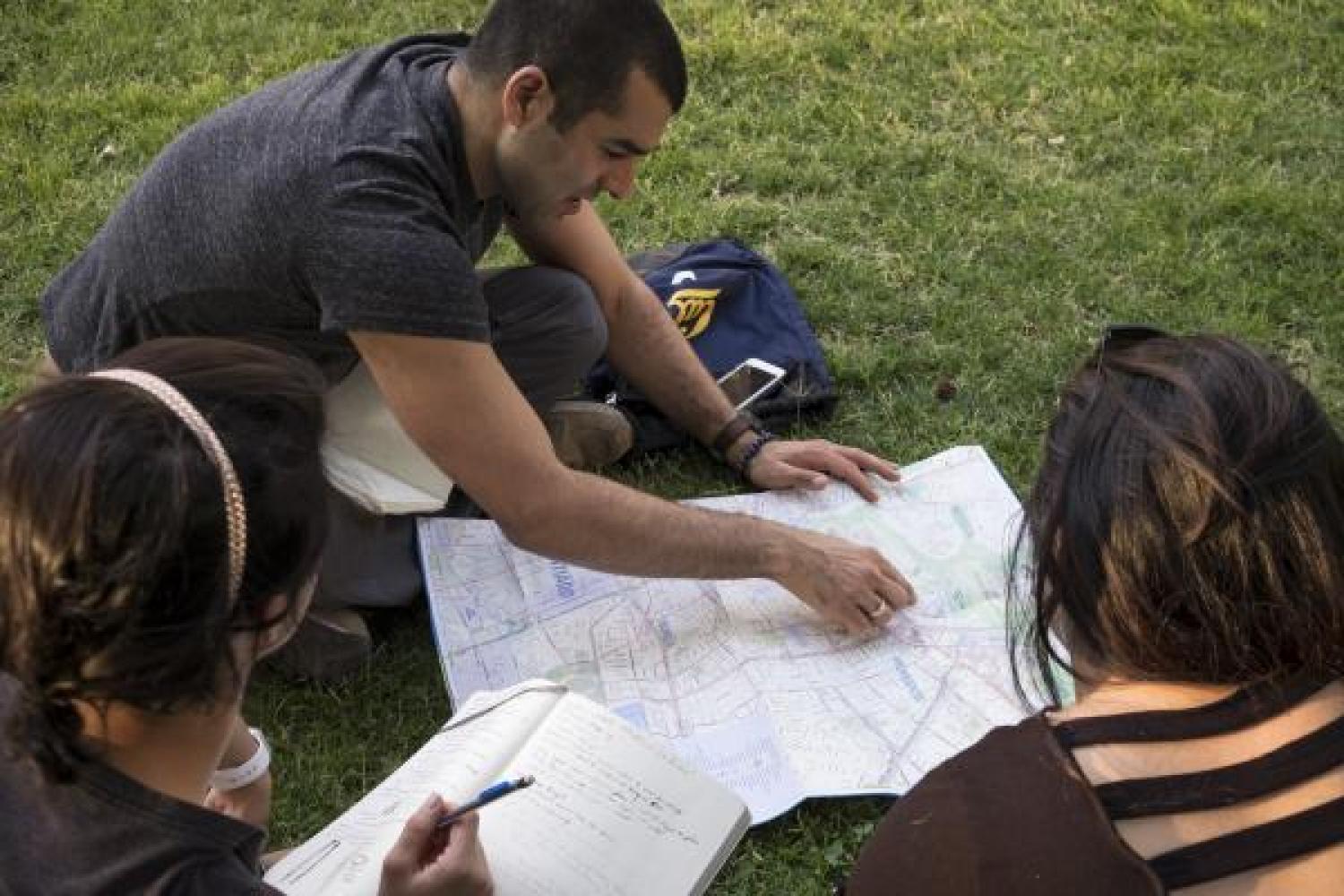Social Justice and Activism in Design

In January, Assistant Professor Shawhin Roudbari traveled to Santiago, Chile with ENVD undergraduate research assistants Alicia Gonzales and Kristina Lu. The trio conducted fieldwork on social justice and activism in design through visual experience and interviews with various architects, planners and professors.
A month before the trip, the team identified a list of people to interview. This allowed them the opportunity to meet with ArchDaily Founder and Editor in Chief, David Basulto.
“They have a huge influence and responsibility to help shape the architecture world, but I had no idea that the global impact was so great,” Lu said about ArchDaily.
Roudbari, Gonzales and Lu made their way to Valparaíso, the second largest metropolitan area in Chile, known as a global hotbed of community activism.
“I think the context is the first part of understanding social justice and activism,” Gonzales said. “The city itself is already telling you with graffiti and murals that there is something here people want to say, and they’re saying it through drawings and pictures, etc…”
For Roudbari, the context of Santiago is much different from what’s available in Boulder. The experience allowed for a better understanding of global perspectives, culture and societies.
“Trips like this, I think are valuable, because not only do we see it and feel it… but, we also take a little bit of that culture back to our program and share with each other.” Roudbari said.
The larger, overall project will last 3-5 years for Roudbari. His ultimate goal is in the works and will showcase the global perspectives on political engagement in design. But for now, he believes the trip was most successful in other ways.
“Part of the thing I’m excited about and that I value is that it lives on in their [Gonzales and Lu] lives, and they take those lessons with them,” Roudbari said.
After the trip, Gonzales and Lu enrolled in an independent study with Roudbari to code, analyze and find notable themes in their data. The findings will be used in, what Roudbari categorized in three different areas, “teaching, research and student’s lives.”


